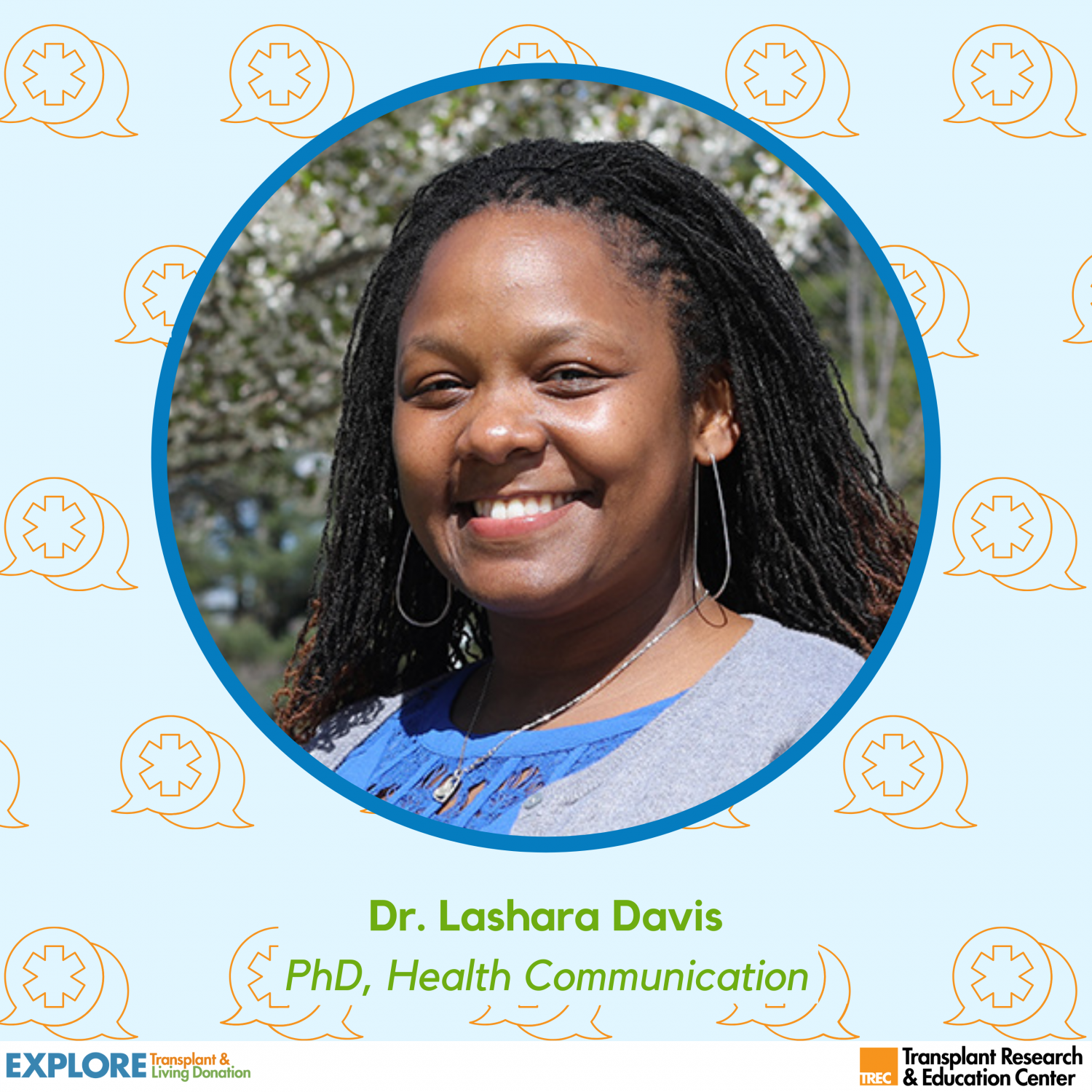By: Alice Yang, Intern & Grace Kim, Research Associate
The field of health communication is one that is often overlooked by other researchers but not by Dr. LaShara Davis. Her introduction to the health communication field happened serendipitously after a couple of changes in career paths and prospects. She began her journey as a psychology major, hoping to go into some sort of therapy in the future. However, when she stumbled across the field of communication, Dr. Davis realized that she wanted to explore speech therapy, motivating her to pursue a degree in communication with a double minor in psychology and linguistics. Following an internship with a speech therapist, Dr. Davis realized that speech therapy would not be the path for her because “it just broke my heart… there are times where you can be working with a patient, and there’s not a lot of change or not significant change.” It was at this point, however, that she was first introduced to the fields of health communication and organ donation/transplant through a research assistantship with Dr. Susan Morgan.
Her first project was the New Jersey Workplace for Life program, which was a grant focused on deceased donation and designed to convince people to become organ donors. Working on this project was what helped her realized that health communication was the avenue in which she could use her education to help others. Within her larger dedication to the field of health communication, Dr. Davis focuses on message design and the science of memorable messages.
Bringing this research into the field of transplantation has involved asking many questions that motivate the understanding of message design and the science of memorable messages in transplant research. For example, what makes people adhere to treatment practices so they can prolong the life of their transplant? How can we convey education to patients in a way that allows them to be well informed and make the best treatment choices for themselves? Asking these questions is essentially what led Dr. Davis into memorable messaging. Getting to the heart of what makes a message stick involves not only a slogan or catchphrase to draw people in, but even how the message is presented or who delivers the message. To Dr. Davis, identifying and understanding the various methods to effectively deliver and address different audiences is the heart of good patient care. Since then, she has been on a mission to “understand the importance of tailoring health messages to help the patients make the most informed decisions and help support them do that.”
Her dedication to the field of transplant and organ donation was spearheaded by the experiences she had with family members who suffered from kidney disease. Three of her family members had kidney disease, one has had a transplant, and all have been on dialysis. She has firsthand experience of how a transplant can enhance not only the life of the recipient but also the relationships of those around them. After a relative of Dr. Davis received a kidney transplant, their relationship completely transformed. Instead of being the “germy child” who had to stay away, they were able to spend quality time and truly engage with each other.
All in all, Dr. LaShara Davis considers her entire journey to the field of health communication and transplant to be very serendipitous. She was introduced to these fields because it was the work that was needed at the time, but once she became engaged and involved in it, everything came full circle. Collaborating with TREC has promoted exposure to different people who all have different perspectives and bring different strengths to the table, which ultimately allow for the creation of different ideas and projects that could not be done individually. If you are a prospective student interested in learning more about health communication and organ donation research, Dr. Davis recommends taking the opportunity to take a health communication class (if you have access to it) or seeking out people who have either trained in health communication or are working in the field.

